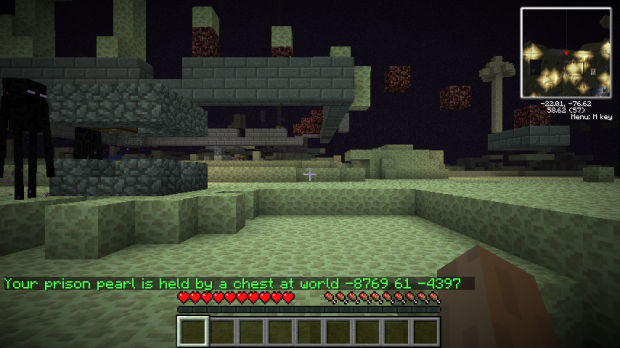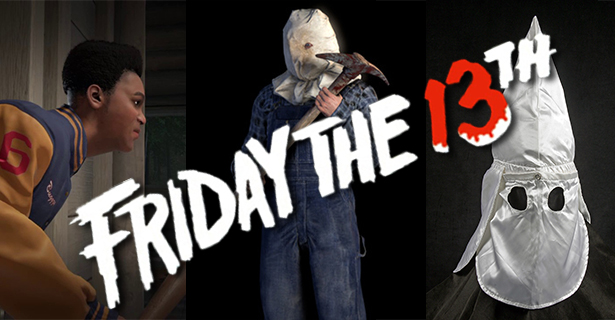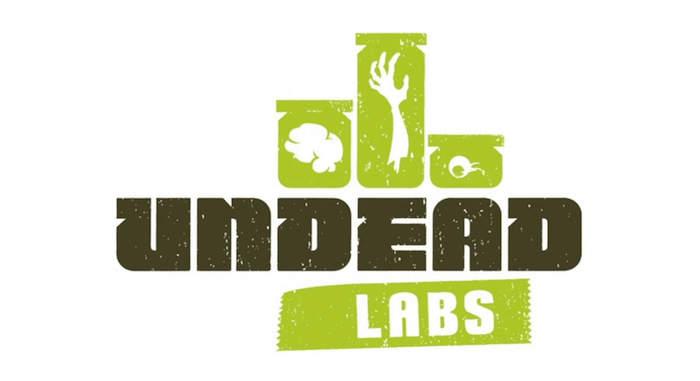 This week, I came across an article by E. McNeill called “History and Games” in which McNeill makes connections between the subject of history and the subject of video games. Indeed, McNeill engages in such a discussion even though, as he says, many “people seem to view history as dry and boring. And hey, if you compare works of history to works of fiction, it’s usually true! The pacing is uneven, major characters will get sick and die for no dramatic purpose, and large portions of the story are sometimes missing entirely. So if these stories are so deficient, why am I such a fan?” Ultimately, McNeill says, he is “such a fan” of history because he believes it is “rooted in reality in a way that most entertainment is not. From grand speeches to personal letters, pivotal elections to life-or-death combat: it all actually took place. It’s a ‘greatest hits’ album of all human events; I can’t help but be fascinated!”
This week, I came across an article by E. McNeill called “History and Games” in which McNeill makes connections between the subject of history and the subject of video games. Indeed, McNeill engages in such a discussion even though, as he says, many “people seem to view history as dry and boring. And hey, if you compare works of history to works of fiction, it’s usually true! The pacing is uneven, major characters will get sick and die for no dramatic purpose, and large portions of the story are sometimes missing entirely. So if these stories are so deficient, why am I such a fan?” Ultimately, McNeill says, he is “such a fan” of history because he believes it is “rooted in reality in a way that most entertainment is not. From grand speeches to personal letters, pivotal elections to life-or-death combat: it all actually took place. It’s a ‘greatest hits’ album of all human events; I can’t help but be fascinated!”
McNeill connects his love of history to his interest in games by arguing that games, “like history, are rooted in reality in a way that fiction is not. When we play a game, we’re writing a new story, but it’s one that’s actually happening. And unlike history, it isn’t trapped in the past. Playing a game is the experience of navigating events and making decisions in the present.” In this way, McNeill reveals that his interest in games is based on his belief that they intersect with truth:
I’m interested in the actual, true events that games can generate: not the story of the characters, but the story of the players. Subterfuge, one of my favorite games of 2015, tells a fictional tale, but it’s a game about real diplomacy and tactics. Yes, the alliances and betrayals take place within the safe context of a game, where a friend’s treachery has less sting, but they’re still the product of genuine human decisions. The choices and actions of the players are true. Like history, they’re immune to the criticism of being unrealistic.
Because McNeill believes that games, like history, are “immune to the criticism of being unrealistic,” he also thinks that those of us interested in games “can take a lesson from the comparison to history. History’s appeal is not primarily its entertaining content, but rather its basis in reality. We forgive aesthetic ‘flaws’ in the narrative because we know that a responsible author is constrained by real events.” And McNeill sees this ability to forgive history’s narrative flaws translates to an ability to forgive games’ ludonarrative dissonance:
When we complain about ludonarrative dissonance, or auto-scaling difficulty, or false choices in narrative, I think we’re ultimately complaining about the betrayal of a game’s core appeal. Our interaction with the game systems was producing an experience that, whatever its dramatic faults, was true. And then that truth was made suspect: was this a result of my decisions, or was it all the designer’s will?
Thus, for McNeill, the idea of “truth” is what matters when thinking about how games function: “It’s natural to want gameplay and story to flow smoothly, following a well-crafted curve of highs and lows. But, as with writing history, there’s a danger in trying to smooth out your material too much. We can create gameplay from rules, and we can control how that gameplay is presented, but there’s danger in trying to fit it into the wrong mold. As with history, we’re bound by the truth.”
 I think that my concern with all this—whether we’re talking about history, games, or any other subject—is this totalizing notion of “truth.” When it comes to history and so-called “truth,” for example, I wonder—what does it really mean to say that history is rooted in reality? What does it even mean to argue that history is rooted in truth? Whose histories get to be true? Whose histories get to be told? Whose truths are we talking about anyway? And I have some similar questions and concerns when it comes to games—what does it mean to say that a player’s choices are real or true? Can our gameplay choices be unrealistic? Can they be realistic? What makes a choice true? Can choices be false? Whose choices get to be true? Whose choices become false? And who gets to decide?
I think that my concern with all this—whether we’re talking about history, games, or any other subject—is this totalizing notion of “truth.” When it comes to history and so-called “truth,” for example, I wonder—what does it really mean to say that history is rooted in reality? What does it even mean to argue that history is rooted in truth? Whose histories get to be true? Whose histories get to be told? Whose truths are we talking about anyway? And I have some similar questions and concerns when it comes to games—what does it mean to say that a player’s choices are real or true? Can our gameplay choices be unrealistic? Can they be realistic? What makes a choice true? Can choices be false? Whose choices get to be true? Whose choices become false? And who gets to decide?
In other words, what I really wonder is—what is truth, really, in either history or games? Because, in the end, history is enacted and recorded by people, just as games are played and made by people, and just as “truth” is defined and shaped by people. So, it seems to me, truth isn’t as universal or objective as we make it out to be. And when we celebrate things like history or games for being “truthful,” we run the risk of alienating and marginalizing those (people who are already consistently alienated and marginalized) whose truths are often not represented in such spaces.
I guess what really gives me pause is the idea that the choices we make—whether these choices occur within the games we play or outside of them—are inherently true, because to construct choice as either (and only) true or false is to construct choice on the basis of a false binary, when, really, what goes into our choices is much more complicated than that. We make choices as a result of a lot of different things—our cultural contexts, our lived experiences, our backgrounds, whatever our choices may be in response to, whatever product we’re hoping our choices will result in. That’s not a true-or-false situation, that’s not a black-or-white situation. That’s all grey area.
 And I think that grey area affects the kinds of choices I make when I play games and when I think about the games I play. When I play a game like Until Dawn or Life is Strange, for example, I don’t think to myself, “The choices I am making while playing this game are true because I am choosing to make them, therefore my experience interacting with this game system is true.” Instead, I ask myself a lot of questions—what kinds of choices would I make in this situation? Why would I make them? What does that say about me? What kinds of choices would Max or Sam make? Why would they make them? What does that say about them? What kinds of choices do the designers allow us to make? Why do they allow them? What does that say about the context in which the game was created?
And I think that grey area affects the kinds of choices I make when I play games and when I think about the games I play. When I play a game like Until Dawn or Life is Strange, for example, I don’t think to myself, “The choices I am making while playing this game are true because I am choosing to make them, therefore my experience interacting with this game system is true.” Instead, I ask myself a lot of questions—what kinds of choices would I make in this situation? Why would I make them? What does that say about me? What kinds of choices would Max or Sam make? Why would they make them? What does that say about them? What kinds of choices do the designers allow us to make? Why do they allow them? What does that say about the context in which the game was created?
And, sure, maybe those aren’t the kinds of things other people think about when they play games. Maybe those aren’t the kinds of choices they’ll make or the kinds of games they’ll play. But, hey, that’s more grey area. That’s getting us even further away from the idea of choice and gameplay as true or false. And that highlights, for me, the fact that choice is culturally constructed, and I think it can be dangerous to say that anything that is culturally constructed is inherently “true.”




